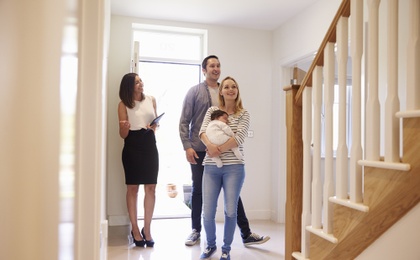The UK housing market can be tricky to navigate, especially when you're trying to buy your first home. Many people found the Help to Buy scheme useful, but now it's ended. We explore what this scheme was and what options you have now.
What was the Help to Buy scheme?
The Help to Buy scheme was a government initiative that started in 2013. The government created it to help people buy new homes when they couldn't afford a large deposit. It was especially popular with first-time buyers who found it hard to save enough money to get on the property ladder.
The scheme gave people an equity loan from the government. This meant you could borrow some money from the government to add to your deposit. With a bigger deposit, you could buy a home that might otherwise be too expensive.
Is the Help to Buy scheme still available?
No, the Help to Buy equity loan scheme closed permanently on 31st March 2023. The government decided to end the scheme after running it for 10 years. This means you can no longer apply for a Help to Buy equity loan to purchase a new home.
If you already have a Help to Buy loan, don't worry! Your loan still exists, and all the rules about paying it back remain the same.
How did the Help to Buy scheme work?
When it was available, the Help to Buy scheme worked like this:
- You needed to put down at least a 5% deposit of the home's value
- The government lent you up to 20% of the property value (or 40% in London)
- You then got a mortgage for the remaining amount
For example, if you wanted to buy a house worth £200,000:
- You paid a £10,000 deposit (5%)
- The government lent you £40,000 (20%)
- You got a mortgage for £150,000 (75%)
The great thing was that for the first five years, you didn't pay any interest on the government loan. This made your monthly payments lower at the start.
What can I do if I've bought my home with the Help to Buy scheme?
If you used the Help to Buy scheme to buy your home, you still have several options:
- Keep living in your home and start paying interest on the equity loan after the first five years
- Pay back some or all of the equity loan
- Sell your home and pay back the equity loan from the sale money
- Remortgage to pay off the equity loan
Each option has its good and bad points, so it's worth thinking carefully about what's best for you.
How to pay back my Help to Buy equity loan
You can repay your Help to Buy loan in two ways:
- Partial repayments: You can pay back part of your loan in chunks of at least 10% of your home's current value. This is called staircasing. You'll need to get your home valued officially each time you do this.
- Full repayment: You can pay back the whole loan at once. This might happen when you sell your home, if you have enough savings, or if you remortgage.
Remember, you pay back a percentage of what your home is worth now, not what it was worth when you bought it. So, if your home has gone up in value, you'll pay back more than you borrowed.
Can I sell my Help to Buy home?
Yes! When you sell your home, you must pay back the Help to Buy equity loan in full. Here's what happens:
- You need to get an official valuation to find out what your home is worth now
- You calculate how much you need to pay back based on the percentage you borrowed
- When the sale completes, the money goes to pay off your mortgage first, then your Help to Buy loan, and you keep what's left
For example: If you borrowed 20% through Help to Buy and your home now sells for £250,000, you'll need to pay back £50,000 (20% of £250,000).
What happens if I want to remortgage?
You can remortgage your Help to Buy home. Many people do this to:
- Get a better interest rate on their mortgage
- Borrow more money to pay off some or all of the Help to Buy loan
- Change to a different mortgage deal
When remortgaging, you'll need permission from the Help to Buy administrator. They might charge a small fee for this. You'll also need to get your home valued again.
Will I find it hard to get another mortgage when I move?
Moving from a Help to Buy property to another home isn't necessarily harder, but there are some extra steps:
- You'll need to pay back your Help to Buy loan when you sell
- This might mean you have less money left for a deposit on your next home
- Mortgage lenders will look at your income and circumstances just like any other buyer
The good news is that if you've kept up with your mortgage payments, this will help your credit score when applying for a new mortgage.
What happens if property values fall?
This is where Help to Buy can be helpful. If your property value falls:
- You'll pay back less on your equity loan than you borrowed
- For example, if you borrowed 20% on a £200,000 home (£40,000), but your home is now worth £180,000, you'll only pay back £36,000
However, you might find yourself in negative equity with your mortgage. This means your home is worth less than the total of your mortgage and equity loan combined. If this happens, it can be difficult to sell your home or remortgage.
What are my alternatives to Help to Buy?
Now that Help to Buy has ended, there are other schemes to help people buy homes:
- Shared ownership: You buy a share of a property (25-75%) and pay rent on the rest. You can buy more shares later.
- First Homes scheme: This offers discounts of at least 30% on new homes for first-time buyers and key workers.
- Mortgage guarantee scheme: This helps buyers get mortgages with just a 5% deposit.
- Lifetime ISA: A savings account where the government adds 25% to what you save (up to £1,000 per year) to help you buy your first home.
- Right to Buy: If you're a council tenant, you might be able to buy your home at a discount.
Each of these schemes has its own rules about who can use them and what properties you can buy. It's worth researching them all to see which one might work best for you.
Remember, buying a home is a big decision. It's always a good idea to speak to a mortgage advisor who can help you understand your options.
Zubin is a personal finance writer with an extensive background in the finance sector, working across management and operational roles. He applies his experience in customer communication to his writing, with the aim of simplifying content to help people better understand their finances.










